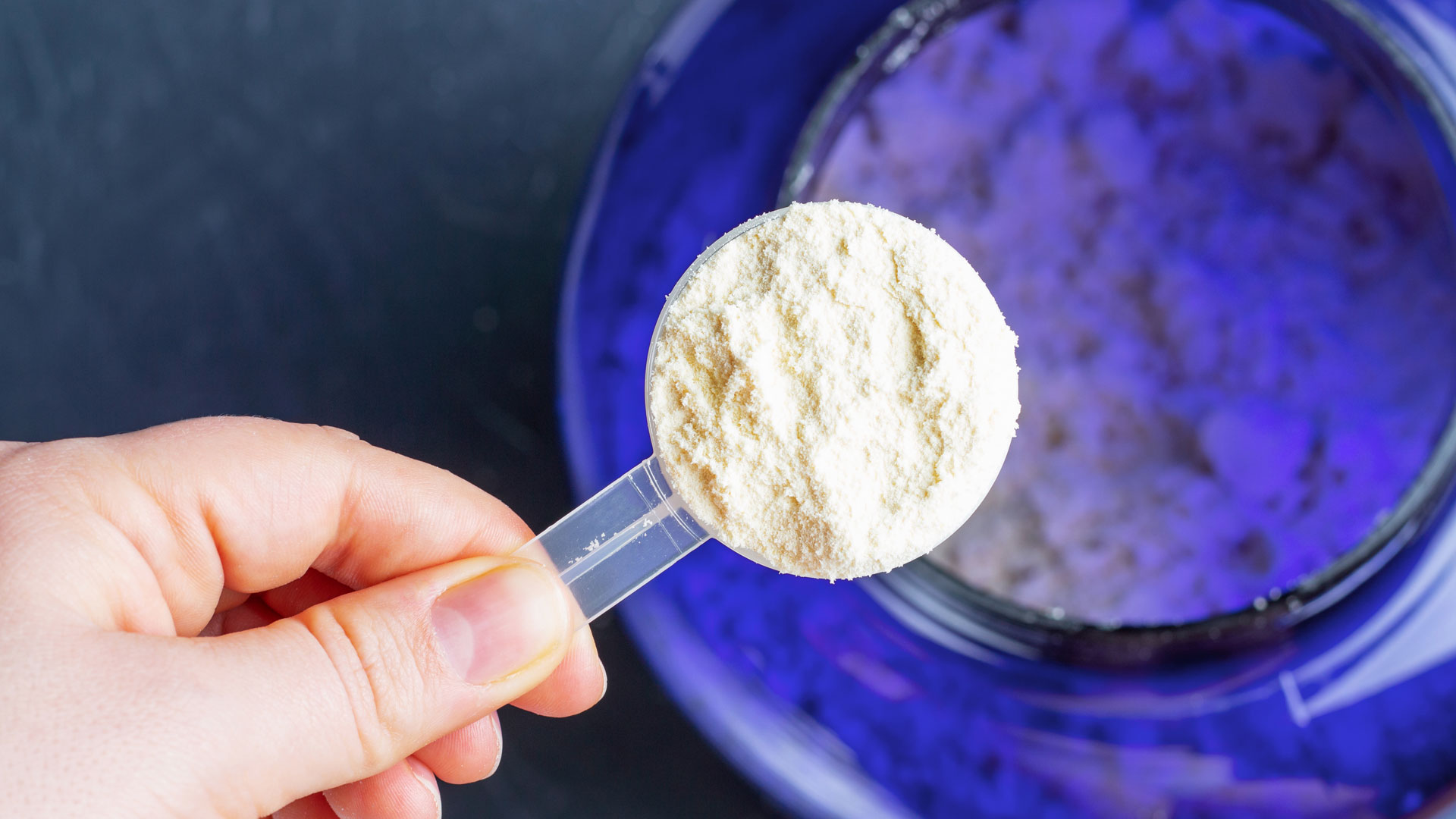What are the benefits of creatine?
There are many benefits of creatine, including muscle growth and improved athletic performance


What are the benefits of creatine and should we be adding it to our diets? Many athletes and fitness enthusiasts take creatine supplements to improve their performance. The benefits i, including muscle growth, aiding exercise recovery, and improving brain function. In addition, creatine supplies energy to your muscles. About half comes from your diet; the rest is produced in your liver and kidneys. Creatine creates a quick burst of energy and increased strength, which improves performance when performing explosive movements like sprints, heavy lifts, and HIIT routines.
If you’re already upping your protein consumption or are taking the best protein powder for weight loss, then it’s likely you’ve heard of creatine already, but how much do you actually need to reap the benefits?
The International Society of Sports Nutrition states that a person needs between 1 and 3 grams of creatine a day. Around half of this comes from the diet, and the body synthesizes the rest. Creatine occurs naturally in red meat and fish, so those on a plant-based diet who wish to improve their performance at the gym may supplement their diet with creatine.
What is creatine?
Personal trainer Liam Cavanagh explains, “Creatine is a substance naturally found in the body which we typically get from foods such as chicken, red meats, and fish. Simply put, it helps your muscles to produce more energy during weightlifting and high-intensity exercise.
There are only relatively small amounts of creatine in those foods mentioned, so people tend to take it in supplement form.”
Research shows about 95% of your body’s creatine is stored in muscles in the form of phosphocreatine. The other 5% is found in your brain, kidneys, and liver. When you supplement with creatine, you increase your stores of phosphocreatine. This is a form of stored energy in the cells, as it helps your body produce more of a high-energy molecule called adenosine triphosphate (ATP). When you have more ATP, your body can perform better during exercise.

What are the benefits of creatine?
Cavanagh explains that there are several benefits of creatine. These include:
Start your week with achievable workout ideas, health tips and wellbeing advice in your inbox.
Improving performance in the gym
“Creatine helps to create more ATP (adenosine triphosphate - what your muscles use for energy) so when you’re looking to lift heavier or move quicker, being able to produce more force from your muscles is key and creatine helps to make that happen.”
Increased muscle growth
“When taking creatine your muscles are able to handle a higher volume of work. An increase in volume is crucial when it comes to building new muscle tissue. It also increases water retention within your muscles, which also gives them a larger appearance.”
Research backs up the muscle-building properties of creatine. For example, in one study of a six-week training program, participants who used creatine added 4.4 pounds (2 kg) more muscle mass, on average, than the control group. Similarly, a comprehensive review showed an apparent increase in muscle mass among those taking creatine compared with those performing the same training regimen without creatine.
Improved recovery from exercise
“When we exercise our glycogen stores become depleted as they’ve provided the energy we needed to work out. This depletion contributes to the feeling of fatigue afterward, but creatine helps to replenish them, making it easier to recover from exercise.”
Research suggests that creatine supplements may help prevent muscle damage and enhance recovery after an athlete has experienced an injury.
Avoiding several creatine deficiencies
“Creatine is a naturally occurring substance. It serves a number of functions outside of just increased energy output in your muscles, so having a deficiency can be a risk factor for many conditions, including, amongst others; multiple sclerosis, depression, Parkinson's, and diabetes.”
In older adults, research shows creatine may boost brain function, protect against neurological diseases, and reduce age-related loss of muscle and strength.
Improved brain function
“Most of the body’s creatine is stored in our muscles, but a small percentage is stored in the brain. By increasing your creatine intake your brain has access to greater amounts of energy for complex mental tasks, helping it to perform complex recall more effectively.”
Studies show that creatine plays a vital role in brain health and function. Research demonstrates that your brain requires significant ATP when performing complex tasks. As meat is the best dietary source of creatine, vegetarians often have low levels. One study on creatine supplements in vegetarians found a 20–50% improvement in some memory and intelligence test scores.

Are there any downsides to creatine?
Cavanagh says, “It’s widely accepted now that creatine doesn’t cause adverse side effects. Like supplementing protein, you’re giving your body more of something naturally occurring and which your body is used to processing.
It’s one of the most well-researched supplements in the world, with studies following participants for as long as four years while supplementing.
People with pre-existing kidney and liver conditions are advised to consult their doctor before supplementing with creatine.”
The International Society of Sports Nutrition found no scientific evidence that creatine monohydrate's short- or long-term use causes any harmful effects on otherwise healthy individuals. Nevertheless, it’s always advisable to contact your healthcare provider before taking creatine or any supplements.
In 2003, a review of 14 studies on creatine supplementation and exercise performance concluded that creatine “Appears to pose no serious health risks when taken at doses described in the literature and may enhance exercise performance in individuals that require maximal single effort and/or repetitive sprint bouts.”
However, keep in mind that the US Food and Drug Administration does not regulate nutritional supplements. Therefore, creatine products sold in stores may vary in the quantity of creatine supplement, quality, and additional ingredients. Check the label to ensure you get a quality product without too many additives.
You might also hear that some people use creatine for weight loss, but it's generally not recommended. Creatine helps increase your muscle mass and causes water retention, so it's more likely to make you gain weight.
Catherine is a freelance journalist writing across titles such as Verywell Health, Healthline, The Daily Telegraph, Refinery29, Elle, and Vogue. She specializes in content covering health, fitness, wellness, and culture.
A once reluctant runner, Catherine has competed in 30 running events in the past five years and looks forward to one day running the London Marathon.
